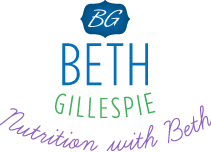Yes, it is true that some people are born with higher set points for happiness than others. Not fair! Ever been around someone who wakes up in the morning singing or whistling and making jokes? Well, I was certainly not born with that high of a set point, but we can all raise our set point over time!
 And there is a lot we can do to raise our set points for happiness from being present and mindful to inviting playfulness and laughter into our daily lives. And even something new and interesting each day!
And there is a lot we can do to raise our set points for happiness from being present and mindful to inviting playfulness and laughter into our daily lives. And even something new and interesting each day!
There are so many ways to increase our happiness set point, but for now let’s focus on certain foods and nutrients!
What are our molecules of happiness?
Serotonin receptors exist in our gut and throughout the brain. Serotonin is responsible for positive mood, feelings of peacefulness, optimism, and self-confidence. Low levels of serotonin have been linked to depression and anxiety.
Dopamine is our neurotransmitter that is vital for motivation, pleasure and reward. Low levels are linked to depression, lack of motivation, and decreased pleasure.
Oxytocin is our love hormone that is associated with social emotions such as trust, generosity, and empathy. It also is responsible for deep social bonds such as between mother and child or the bond experienced in romantic relationships. Interesting to note that dopamine stimulates the hypothalamus to produce oxytocin.
What can we do to support the production of serotonin and dopamine (and ultimately oxytocin?)
Tryptophan is an amino acid that is converted to 5-HTP and then to serotonin. High tryptophan foods include seeds, nuts, wild game, beef, turkey, tempeh, tofu, kelp, pineapple, and bananas. So you would think that people would reach for these foods when they need a boost or happy pill. Unfortunately, high-tryptophan foods won’t boost serotonin on their own. The tryptophan you find in food has to compete with other amino acids to be absorbed into the brain, so it’s unlikely to have much of an effect on your serotonin levels. However, eating these foods with starchy carbohydrates might help, as carbs cause the body to release more insulin, which then promotes amino acid absorption. But even this does not ensure an increase in serotonin levels right away, as tryptophan is a larger protein molecule and is at a disadvantage with the smaller amino acids when competing for entry. So what do people reach for?
Sugar and processed carbohydrates! Foods rich in sugar and processed carbs will raise serotonin levels quickly, but only temporarily. And then you just keep wanting more sugar and processed carbs for another boost, leading to weight gain and blood sugar issues and gut problems! And more mood issues! Over time, the cookies and pasta and bagels used to increase serotonin levels actually inhibit production of serotonin!
How does tryptophan get converted to serotonin? Key vitamins and minerals needed to convert tryptophan down the metabolic pathway to serotonin include magnesium, zinc, vitamin B6, vitamin C, and iron! So many Americans are deficient in magnesium zinc, and B6 due to lack of these nutrients in their diets AND medications/OTC drugs that deplete these critical nutrients.
Tyrosine is an amino acid that is also found in many foods and is converted to L-Dopa and then dopamine. This metabolic pathway depends on magnesium, vitamin B6, vitamin C, and iron. See a pattern here?
Are you getting these important nutrient co-factors through diet and supplements? Foods rich in magnesium include nuts (esp. almonds, cashews, Brazil nuts, and filberts), seeds, whole grains like buckwheat and millet, tofu, leafy greens like collard leaves and dandelion greens, and dried fruits like dried figs and apricots.
Foods rich in vitamin B6 include seeds (especially sunflower seeds), lentils and other legumes, bananas, avocados, greens such as spinach and kale, Brussel sprouts, and cauliflower.
Foods rich in zinc include oysters (the highest source of zinc!), other shellfish, red meats, and plants foods such as nuts, seeds, and legumes.
Eat a variety of unprocessed plant foods in the lists above to support the conversion of tryptophan and tyrosine to your happy molecules like serotonin and dopamine. Remember that dopamine also stimulates the production of oxytocin! And you can increase your oxytocin levels just by giving or receiving a BIG hug!
All these plant foods are loaded with plant chemicals that decrease oxidative stress and inflammation…which ultimately leads to all biochemical pathways working more efficiently!
TAKEAWAY: Ensure that you are getting enough amino acids through protein rich foods and a variety of fresh veggies, fruits, nuts/seeds, and legumes (if tolerated) to support the conversion of amino acids to your happy molecules!
If you are unsure if you are low in magnesium, zinc, vitamin B6 or iron, you can have your nutrient status assessed via blood or urine. Red blood cell magnesium is a good test to assess magnesium levels. An Organic Acids test is a good way to assess B vitamin levels. You may need to supplement short term to bring your vitamin and mineral levels back to balance. Your happiness depends on it!
